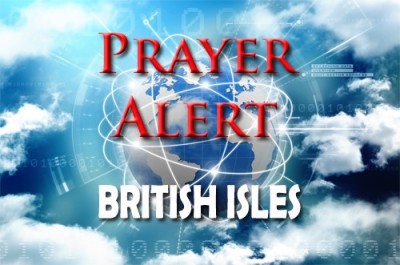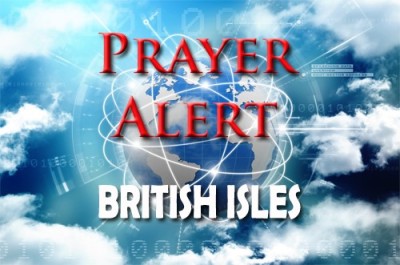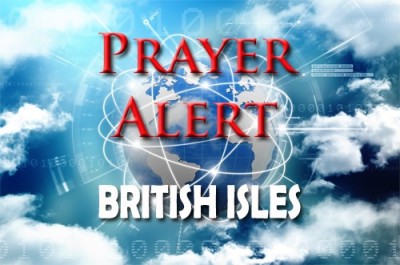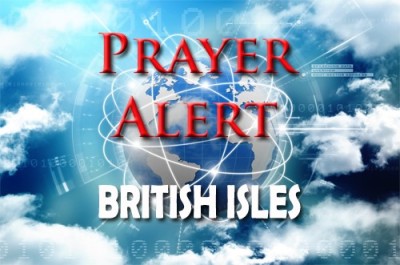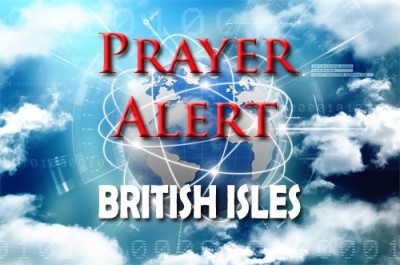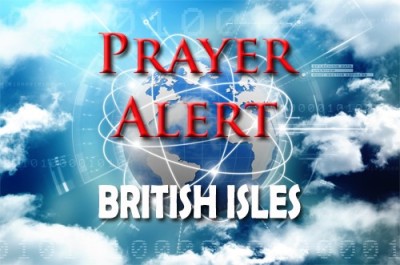This year, over 200,000 attended the Glastonbury festival, to enjoy performances by major stars like Dua Lipa and Coldplay. Christian music took an unexpected spotlight when singer and teacher James Partridge led the crowd in worship songs remembered from primary school assemblies. Viral videos showed festival-goers enthusiastically singing and waving their arms to classics like ‘He's got the whole world in His hands’, ‘Shine, Jesus, shine’, and ‘This little light of mine’. Travel influencer Tasha Whitley and other festival-goers shared clips of the joyful, unifying experience. Festival attendees took to social media to praise the set, highlighting the nostalgia and joy it brought. Partridge, who teaches at various schools and has sung on recordings with notable artists, said, ‘The most incredible experience ever! Cannot believe I've just performed at Glastonbury. Incredible turnout today, the joy of singing really does unite!’
‘Too pretty’, but rejects selling her body
05 Jul 2024Ariana Cossie grew up helping her single father raise her siblings, excelling in school and church activities. Her life drastically changed in 2019 when her mother was murdered, causing her immense grief. She struggled with mental health issues, and even contemplated suicide while at university. However, successive personal tragedies drew her closer to Jesus, leading her to a deeper spiritual journey. After going viral in 2023 with a video as The Home Depot girl, she rejected critics who said she was too pretty to be working for a department store and advised her to make millions by opening a porn account. Her refusal to sell her body and soul generated a backlash, and she had to quit Home Depot - but she has now returned with a renewed mission to share her faith. She now actively proclaims her love for Jesus, aiming to spread light and love in a world she believes needs God.
Labour ‘tsunami’ as nation votes to eject Tories
05 Jul 2024Sir Keir Starmer has declared a historic Labour victory in Britain’s general election, achieving a majority of at least 172 seats. Rishi Sunak acknowledged the Conservative party’s devastating defeat, which saw its worst-ever result. Despite Labour’s historic win, its public support remains shallow, securing power with about 34% of the national vote. Starmer, addressing activists, emphasised hope and progress. Labour’s victory mirrors Tony Blair’s 1997 landslide, but with a lower vote share. Its success was partly due to the rightwing vote being split by Nigel Farage’s Reform party. One pollster commented that it seemed more a Conservative loss than a Labour win. The Liberal Democrats won 71 seats (compared with only eight in 2019), and the other big losers were the Scottish National Party, which lost 38 seats in the Labour ‘tsunami’. Overall turnout was only 60%, almost the lowest-ever proportion in a general election.
The scale of the swing to Labour means that a significant number of prominent Conservatives have lost their seats. These include former prime minister Liz Truss, defence secretary Grant Shapps, justice secretary Alex Chalk, education secretary Gillian Keegan, leader of the house Penny Mordaunt, and influential back-bencher Jacob Rees-Mogg. Chancellor Jeremy Hunt held on to his seat by just 891 votes. The Tories also lost the seats formerly held by prime ministers David Cameron, Boris Johnson, and Teresa May. By contrast, nearly 50% of all MPs will be entering the House of Commons for the first time.
A BBC analysis has revealed extensive efforts by oil companies and public bodies to protect their premises from environmental protesters through civil injunctions. More than 400 protesters have been named in orders affecting over 1,200 locations in England and Wales, including oil terminals and petrol stations. These injunctions also target ‘persons unknown’, which would allow anyone to be prosecuted. The unprecedented use of these injunctions has sparked debate, with oil companies and public bodies claiming they prevent dangerous protests, while lawyers for protesters argue they create a ‘privatised system of justice’ lacking criminal law safeguards. Breaching an injunction can lead to severe penalties, including imprisonment. Protesters argue that the injunctions unfairly limit their rights, and Friends of the Earth are now taking a case to the European Court of Human Rights, challenging their use. Legal aid limitations and potentially high legal costs deter many from contesting these orders.
Scotland: waste and recycling staff to strike
05 Jul 2024Waste and recycling staff in half of Scotland's councils have voted to strike over a pay dispute. Unite members in 16 local authorities rejected a pay offer from Cosla, the local government body. Cosla defended its offer and urged unions to reconsider. GMB members in 13 council areas have also voted to strike. The two unions criticised the offer as inadequate, with Unite's industrial officer calling it ‘pitiful’. Unite's general secretary has talked of years of underfunding and understaffing. A GMB senior organiser highlighted the drawn-out nature of talks and the refusal of council leaders to have meaningful discussions. Strike dates will be announced soon, potentially impacting the Edinburgh Festival. Cosla expressed disappointment, stressing the importance of rewarding the workforce within budget constraints.
South West Water (SWW) has stated that the cost of addressing the cryptosporidium outbreak in Devon will be covered by shareholders, not customers. The outbreak affected up to 16,000 households, with about 700 still being advised to boil their tap water. SWW estimated compensation costs up to £3.5 million but assured customers this would not impact their bills. The exact compensation amount for those affected remains unknown. SWW has installed equipment to remove the parasite and flushed the water network 27 times, apologising and thanking customers for their patience. By the end of May, at least 100 confirmed cases of cryptosporidium, which causes diarrhoea and sickness, had been reported. In related news, all the major political parties have been urged to follow the recommendations of the Save Britain’s Rivers campaign: so far, only the Lib Dems have committed to this. See
Lucy Letby found guilty of another murder
05 Jul 2024Former nurse Lucy Letby has been found guilty of attempting to murder a premature baby girl, Baby K, following a retrial. Baby K’s family described their ordeal as a ‘long, torturous and emotional journey – twice’, expressing their continued distress. Last August, Letby was convicted of murdering seven babies and attempting to murder six others at the Countess of Chester Hospital. The retrial jury determined she tried to murder Baby K by dislodging her breathing tube. A consultant who intervened to resuscitate Baby K testified that Letby did nothing to help. The baby died three days later due to extreme prematurity and severe respiratory distress syndrome. The hospital has since made significant changes to its services. A public inquiry will begin in September, and a police investigation is ongoing.


